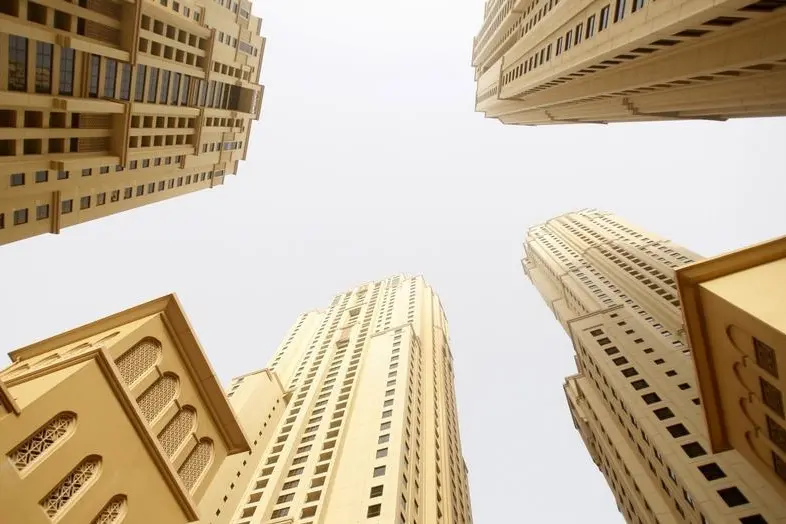PHOTO
LONDON - Higher interest rates and falling property prices could hit Dubai developers’ transaction volumes linked to the purchase of properties off-plan, warn experts.
Craig Plumb, head of research at property advisory firm JLL in Dubai, said rising interest rates were undoubtedly a negative for residential real estate markets and Dubai was no exception.
But he said the Dubai market was less susceptible due to the higher number of purchases made with cash or using interest-free finance plans offered by developers.
Jesse Downs, managing director of Phidar Advisory, a real estate consultancy in the UAE, said developers have been offering generous off-plan purchase deals. These often involved offers to pay between 40 percent and 60 percent of the sale price two years or more after completion, she said.
In the past, developers offered a standard payment plan which was 70/30 — meaning 70 percent money paid during construction in staggered payments, and 30 percent paid on handover. Today, there are offers of 20 percent on booking and 80 percent on handover.
Such deals have grown more popular since the introduction of a mortgage cap that has depressed the secondary sales market — with buyers spotting an easier way to get on the property ladder, said Downs.
Such deals have grown more popular since the introduction of a mortgage cap that has depressed the secondary sales market — with buyers spotting an easier way to get on the property ladder, said Downs.
But if the market falls too sharply and sentiment turns, there may be danger ahead.
“Potentially, there would be a bigger impact when less of a percentage has been paid down on the product,” said Downs. That’s because with less to lose, some buyers may be tempted to cut their losses and run, if they think prices won’t recover.
Downs said: “These ... deals are artificially driving supply up … encouraging overbuilding which drives up market risks.”
But she isn’t envisaging anything like the situation that followed the great financial crash when the Dubai property market almost imploded. “There might just be an odd project here and there, but also keep in mind there is a (government) program in place for orderly transfers.”
Downs reckons Dubai residential property prices are forecast to fall between 10 percent and 15 percent in 2018.
“We see the residential market softening further this year — about 3 percent per quarter. It’s an inevitable, delayed correction — it needs to happen,” she said.
Last year, Standard & Poor’s said the historically low oil price and strong dollar would continue to push property prices down in Dubai, while prices in Abu Dhabi would follow suit.
In 2017, apartment rents fell 8.4 percent and the price of single family villas were down 14.5 percent, according to data by Phidar. But more pain would be felt this year, Downs warned.
The core of the problem is that job creation is down, while supply is still growing steadily. “People’s budgets have been hit by lower disposable income following benefits cuts. The introduction of VAT means another hit, although not a big one, but people are going to be more careful, and this puts downward pressure on rents,” she said.
Dubai’s economy has been knocked by the drop in oil prices with banks, oil companies and even schools cutting jobs to reduce costs.
Copyright: Arab News © 2017 All rights reserved. Provided by SyndiGate Media Inc. (Syndigate.info).





















